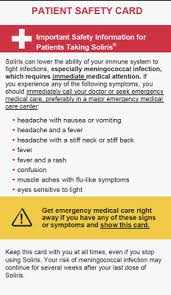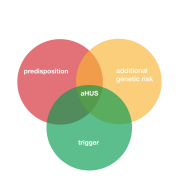This time last year a couple of dozen people with an interest in global aHUS advocacy were discussing and deciding on the creation of a Community Advisory Board for aHUS. As part of those discussion was how to recruit its membership. At that time the CAB had not featured in public , it did not formally exist and so an interim recruitment process was put in place for those in the aHUS partnership that had been been involved in moulding the CAB and its way of working.
As a result of that recruitment process 12 members formed the inaugural Board . Their names were announced in June 2022.Now With more experience of being a CAB, the time has come to seek additional members. There are no vacancies as all current Board members are wishing to continue.
For the CAB to be truly Global it is also important to have representation from all continents and currently that cannot be said of the CAB because it lacks members from South America , Africa and the EU.
So for this first public call for new members the CAB is seeking people from those geographical areas with a record of advocacy for aHUS and motivation to help aHUS patients throughout the world as part of a team.
Full information about being a board member can be seen below. Visit our aHUS CAB landing page at https://bit.ly/GlobalCABaHUS
To apply to become a member of the Global aHUS Community Advisory Board down load the document below and answer the four questions and e mail a copy of your application to info@ahusallianceaction.org by 21 February 2023. (Missed this due date? We still want to hear from you! Contact us & express interest: info@aHUSallianceAction.org)
Successful applications will be announced on 28th February 2023, Rare Disease Day.
ROLE OF A CAB MEMBER AND ELIGIBILITY TO JOIN
Introduction
The Global aHUS Partnership (GaP) is working with EUPATI Spain to set up a Global aHUS* Community Advisory Board (CAB). This is an important initiative for the atypical Hemolytic Uremic Syndrome, aHUS, global community.
An aHUS CAB offers the following opportunities:
- To influence the research and development pipeline for aHUS treatments so that it better meets the needs of patients and carers.
- To increase access to, and reimbursement of, aHUS treatments worldwide..
- To improve awareness and understanding of aHUS within the healthcare system, academia, industry and governmental institutions, and among the general public throughout the world.
- To create a louder voice for the aHUS patient community.
- To recruit, train and support more patient advocates and experts to work both within individual countries as well as internationally.
The aHUS CAB will be a group of patient advocates and expert patients/carers who use their personal and/or professional knowledge and expertise to discuss and advise on the latest developments, challenges and issues related to medical treatments and procedures under development in their disease area. The CAB will act as a consulting service to stakeholders involved in the research, development, reimbursement and service provision of biomedical treatments or processes, including both scientific and policy-related issues.
This document sets out what is involved with being a member of the Community Advisory Board and related requirements.
Role description
Overview of role
CAB members act as a systematic, efficient, professional and accountable group of collaborators who speak with external stakeholders involved in research and development of aHUS medical treatments and procedures, including with those involved in the design and running of clinical trials, as well as national and international institutions dealing with reimbursement and access issues. Board members, both individually and collectively, provide expert advice and insight in a neutral, objective and critically constructive manner, representing the unique perspective of the patient voice.
Main responsibilities or tasks
- To attend meetings of the CAB as and when required, both in person and by way of e-meetings or conference calls.
- To be an active participant in CAB meetings, sharing expert insight and advice with the external stakeholders attending the meetings.
- To commit to ongoing learning, training and development outside of CAB meetings so as to be part of a high quality, well-informed, influential and insightful Board.
- To represent the interests of participants in clinical trials, including:
- Reviewing clinical trial design at a planning stage.
- Monitoring selected on-going trials with regard to patient priorities.
- Staying informed about the interim results of selected trials, when appropriate.
- Suggesting and helping start trials that reflect patient needs, and quality of life (QoL) and patient-reported outcome (PRO) measures.
- Reviewing informed consent forms (in relation to appropriate content, language, logic etc).
- To promote best practice in research procedures and ethics.
- To represent the patient perspective at investigator and advisory meetings and Data Safety and Monitoring Committees (DSMCs).
- To advocate for fair, sustainable, and affordable pricing and access to treatment.
- To promote universal access to treatment, including for vulnerable groups (e.g., children, the elderly, disabled people).
- To support the involvement of patients in adverse events reporting.
- To maintain strict confidentiality in relation to the CAB’s work and any information, market insight or personal information shared with the CAB, unless otherwise cleared by the Chairs or Scientific leads of the CAB. I.e., always ask the Chair before sharing information outside the CAB.
- To contribute to the creation and development of the CAB Charter on its way of working including recruitment, service tenure and election of members and officials.
Reimbursement/remuneration
CAB members will be paid for their time in attending formal Board meetings at a day rate. Time spent travelling will not be reimbursed, however, reasonable travel and accommodation costs will be reimbursed.
Key experience, knowledge, abilities and skills
- Excellent knowledge of aHUS gained from personal or professional experience.
- Good communication and personal interaction skills.
- Good advocacy skills.
- Ability to understand complex science, clinical trials processes and research/development issues.
- Ability to think, communicate and act objectively and constructively.
- Respect for others and integrity.
- A passion for improving outcomes in aHUS.
Eligibility to become a CAB member
1 To be an aHUS CAB member, you must be someone who:
- has, or has previously been diagnosed with aHUS; or
- is a parent of someone living with aHUS, or
- is a carer of a person with aHUS, or
- is a family member of a person with aHUS, or
- is a member of an organisation working primarily in the field of aHUS (see also para 2 below).
and who:
a. is able to demonstrate a strong interest in the wider aHUS community and/or aHUS treatment research and development, e.g., through being linked with, affiliated to or a member of an organisation working primarily in the field of aHUS, or through being part of established online social networks related to aHUS.
b. has good English skills, including reading, writing and conversing/interacting in the language.
C. is able to demonstrate an interest in, or willingness to learn about, science and medicine in order to fully appreciate the depth of the CAB’s work. An interest in social sciences can also be important. (For those with limited scientific or medical knowledge/understanding, training and support will be provided, including through face-to-face and virtual training, and through access past presentations and online/distance learning provided through EURORDIS, EUPATI and the aHUS Global Partnership.
d. has the available time to commit to the work of the CAB, including any required training. The time commitment varies from week to week, and month to month, but on average CAB members should allow up to eight – ten hours per month.
e. is willing to travel to CAB meetings, which can held anywhere, but usually in Europe or USA. and can last for two, three or four days. (presently, we do all online, but bit by bit we will return to face-to-face!)
f. has a good internet connection to enable e-communication and e-meetings of the CAB.
2. If you are applying as a member of an organisation working primarily in the field of aHUS, please ensure:
- You have permission of the authorised person within your organisation to apply and be part of the CAB, including making the necessary time commitment. You will act as an individual, but the backing of your local/national organisation is useful.
- You will not be able to share any confidential information with anyone outside the CAB.
- Your organisation adheres to the Code of Practice Guiding the Relations between Patient Organisations and the Healthcare Industry (signed by organisations that are members of the Patients’ and Consumers’ Working Party at EMA) or a corresponding code of practice for the Pharmaceutical Industry in your country.
*aHUS in the widest definition of the term, including all Complement mediated thrombotic microangiopathies ( CM-TMA).
Article No. 565


